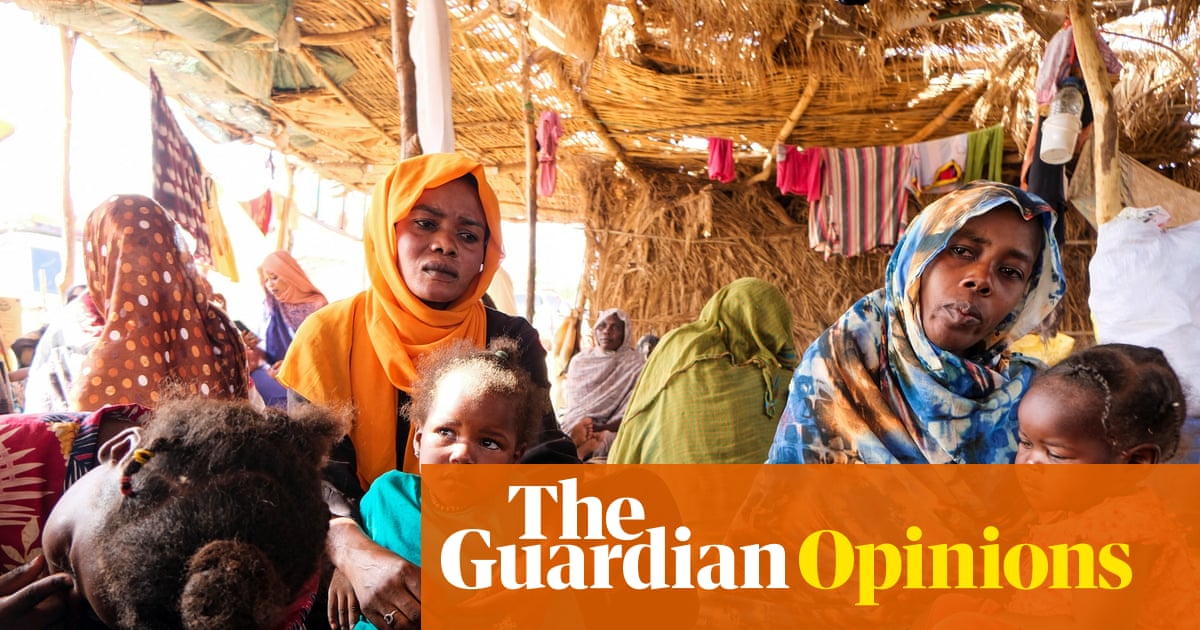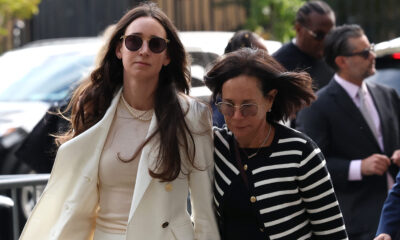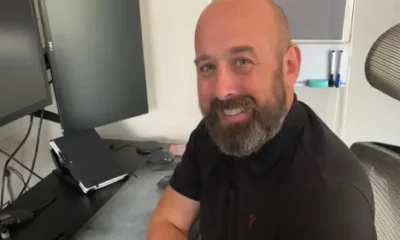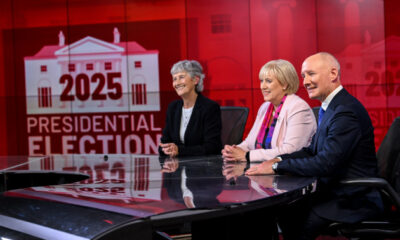Opinion
The Guardian view on catastrophe in Darfur: The world has looked away, but Sudan’s civilians can’t wait any longer | Editorial
Read more on post.

When the history of the 21st century is written, the name of El Fasher will surely appear on its bleakest pages. The besiegement of the city by Sudan’s paramilitary Rapid Support Forces (RSF) has lasted more than 500 days. Families are surviving on animal feed. An estimated 260,000 civilians face a terrifying choice: to stay and die of starvation or in an airstrike – or attempt to flee and face rape, robbery and death.
El Fasher is the last major city in Darfur still defended by the Sudanese Armed Forces (SAF) – and allied fighters – in the bloody and unrelenting struggle with the RSF, which has lasted almost two and a half years. Yet a conflict that has created the world’s largest humanitarian crisis has remained largely ignored as the wars in Ukraine and Gaza have consumed international attention. In the runup to the UN general assembly in New York last week, the US finally appeared to be making a push for action. With Saudi Arabia, Egypt and the United Arab Emirates (UAE), it called for a three-month truce to allow aid deliveries, leading to a permanent ceasefire. Separately, the African Union, European Union, UK and others called for the two sides to resume direct talks.
For too many, especially in Darfur, the diplomatic action has come far too late. Even as discussions took place in New York, the horrors in El Fasher mounted. About 150,000 people – perhaps many more – are believed to have been killed in the civil war and 12 million people have been displaced, many of them into other fragile states. Almost 25 million face acute hunger. The US has accused the RSF of genocide, both sides have committed war crimes and the Sudanese army is accused of using chemical weapons.
This conflict could not have been so deadly without the interference of outside parties. Egypt and Saudi Arabia are aligned with the SAF; the UAE denies backing the RSF, but diplomats, analysts and campaigners believe that it is supplying arms and other support. The joint call was a rare and faint sign of potential diplomatic progress.
There is no indication that the internal players are any closer to considering peace. Gen Abdel Fattah al-Burhan, the head of the SAF, may be even less minded to give ground since his troops took back Khartoum this spring. That led the RSF, under Gen Mohamed Hamdan Dagalo – known as Hemedti – to intensify its campaign in Kordofan and particularly Darfur. Some believe the RSF is serious about partitioning Sudan; others that it wants leverage. Divisions and competing interests within both forces may make it harder to resolve the war.
Renewed diplomatic effort is welcome, but it must be serious and it must be sustained. Critics say that the UK – the penholder on Sudan at the UN security council – has prioritised maintaining its relations with the UAE. The devastation in Sudan speaks to a wider crisis too, as Dr Comfort Ero, head of the International Crisis Group, warned this month. More leaders worldwide now feel confident to pursue their aims militarily, without expecting significant pressure on them, while middle powers are exporting their interests and rivalries. This war is currently being waged most brutally in El Fasher. But what happens in Darfur in the days and weeks to come will help to determine what happens elsewhere in Sudan, in the region and around the world.
Opinion
The Guardian view on catastrophe in Darfur: The world has looked away, but Sudan’s civilians can’t wait any longer | Editorial
Read more on post.

When the history of the 21st century is written, the name of El Fasher will surely appear on its bleakest pages. The besiegement of the city by Sudan’s paramilitary Rapid Support Forces (RSF) has lasted more than 500 days. Families are surviving on animal feed. An estimated 260,000 civilians face a terrifying choice: to stay and die of starvation or in an airstrike – or attempt to flee and face rape, robbery and death.
El Fasher is the last major city in Darfur still defended by the Sudanese Armed Forces (SAF) – and allied fighters – in the bloody and unrelenting struggle with the RSF, which has lasted almost two and a half years. Yet a conflict that has created the world’s largest humanitarian crisis has remained largely ignored as the wars in Ukraine and Gaza have consumed international attention. In the runup to the UN general assembly in New York last week, the US finally appeared to be making a push for action. With Saudi Arabia, Egypt and the United Arab Emirates (UAE), it called for a three-month truce to allow aid deliveries, leading to a permanent ceasefire. Separately, the African Union, European Union, UK and others called for the two sides to resume direct talks.
For too many, especially in Darfur, the diplomatic action has come far too late. Even as discussions took place in New York, the horrors in El Fasher mounted. About 150,000 people – perhaps many more – are believed to have been killed in the civil war and 12 million people have been displaced, many of them into other fragile states. Almost 25 million face acute hunger. The US has accused the RSF of genocide, both sides have committed war crimes and the Sudanese army is accused of using chemical weapons.
This conflict could not have been so deadly without the interference of outside parties. Egypt and Saudi Arabia are aligned with the SAF; the UAE denies backing the RSF, but diplomats, analysts and campaigners believe that it is supplying arms and other support. The joint call was a rare and faint sign of potential diplomatic progress.
There is no indication that the internal players are any closer to considering peace. Gen Abdel Fattah al-Burhan, the head of the SAF, may be even less minded to give ground since his troops took back Khartoum this spring. That led the RSF, under Gen Mohamed Hamdan Dagalo – known as Hemedti – to intensify its campaign in Kordofan and particularly Darfur. Some believe the RSF is serious about partitioning Sudan; others that it wants leverage. Divisions and competing interests within both forces may make it harder to resolve the war.
Renewed diplomatic effort is welcome, but it must be serious and it must be sustained. Critics say that the UK – the penholder on Sudan at the UN security council – has prioritised maintaining its relations with the UAE. The devastation in Sudan speaks to a wider crisis too, as Dr Comfort Ero, head of the International Crisis Group, warned this month. More leaders worldwide now feel confident to pursue their aims militarily, without expecting significant pressure on them, while middle powers are exporting their interests and rivalries. This war is currently being waged most brutally in El Fasher. But what happens in Darfur in the days and weeks to come will help to determine what happens elsewhere in Sudan, in the region and around the world.











